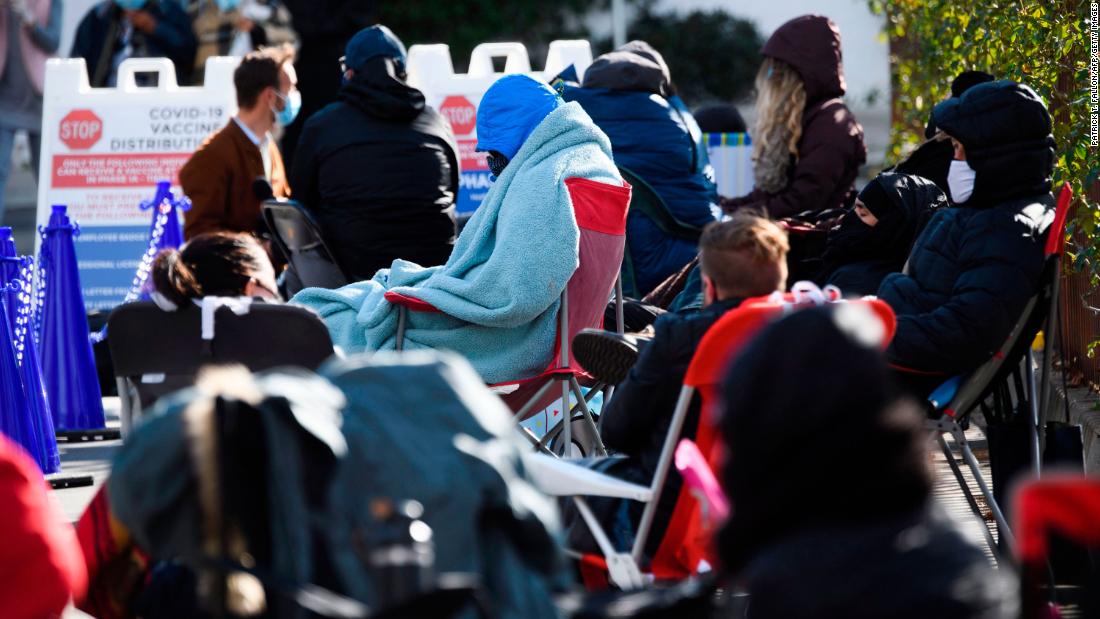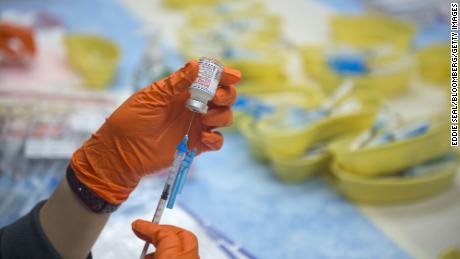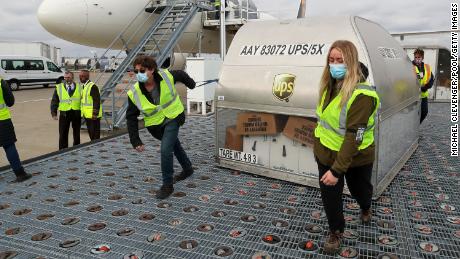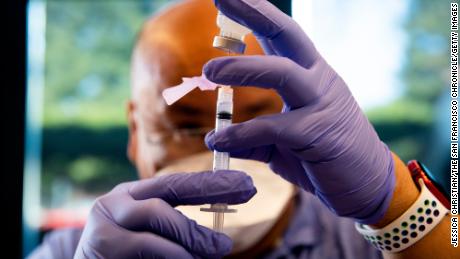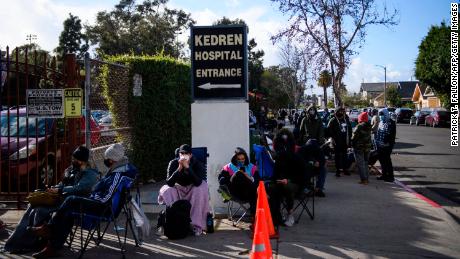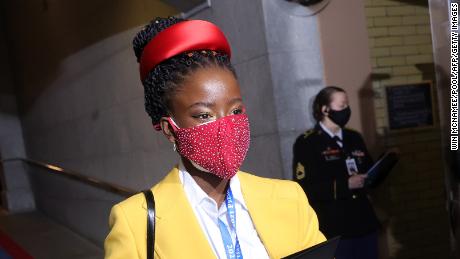Some people are finding ways around pandemic protocols to get their Covid-19 shots early. Here’s how.
She wasn’t willing to wait.
Medina, a healthy 25-year-old, moved across the country to live with her parents on the East Coast after her work in the film industry dried up. Anxious to return to work safely, Medina decided in mid-January to go “vaccine dumpster diving.”
Though a dumpster, this was not. Rather than dig through a hospital’s garbage for vials, Medina staked out a grocery store pharmacy. She wanted to score a leftover vaccine.
She and a friend arrived in the early afternoon, prepared to wait. A line formed behind them. Hours later, when the day’s appointments were done, pharmacy staff offered up eight leftover vaccines. Medina and her friend gleefully claimed two of them.
“I felt good about it — and better that it didn’t go to waste,” she told CNN.
Medina is what has been described by many on the internet as a “vaccine hunter,” or someone who stalks a pharmacy or vaccination site for leftovers.
They see it as a win-win: They get vaccinated and a precious dose of the Covid-19 vaccine doesn’t end up in the trash. But their gain is also a symptom of a lack of coordination in the US vaccination plan — the initial rollout was much slower than expected, delaying President Joe Biden’s plan for “100 million vaccinations in 100 days.”
The lucky — and privileged — few who get vaccinated early assure what they’re doing isn’t wrong, although it certainly feels unfair to those who don’t have the time or resources to “hunt” for their own.
Unsurprisingly, the hunters have been criticized for “jumping the line.” But the hunters argue what they do is more ethical than letting the vaccines expire.
“This might be a good way for people who haven’t been able to get around the logistical nightmare of signing up to just show up and get it,” Medina said.
Vaccine hunting is a ‘fix’ for slow vaccine rollout
The current pace is 1.3 million doses per day. At this pace, the US will have reached about 75% of population for herd immunity by summer 2021.
To vaccine hunt is to devote hours, possibly days, of your life waiting for a dose of a vaccine that may or may not be available. It’s a crapshoot. You need time, money, connections and luck to succeed. But some say it’s worth the effort involved.
Brad Johnson, a medical student at Tulane University, wanted to make tracking down vaccines a bit easier.
He said he got the idea after a friend living in Israel told him about Facebook groups in the country where residents inform each other about the pharmacies that had extra doses.
“When there’s a surplus of doses about to expire, they ignored the vaccination schema and just offered it to anyone,” he told CNN.
So, about three weeks ago, Johnson made a tool like that for New Orleans. The group now has close to 600 members.
Johnson said he’s heard of a few members successfully tracking down leftover vaccines for themselves or their parents.
The Facebook group is Johnson’s attempt at correcting what he called a “patchwork of chaos” in the US vaccine distribution plan.
Biden has an ambitious goal of administering “100 million vaccines in 100 days.” Whether he’ll succeed has yet to be seen, considering he’s been in office for less than a month. Some health officials believe his goal is too modest as Covid-19 cases continue to climb unimpeded.
The ethical conundrum of vaccine hunting
Because the vaccine is in such high demand and so difficult to actually get — including for people who are eligible to receive their vaccine — there’s a feeling of injustice when otherwise healthy people get it, even if they aren’t technically stealing doses from people who need them, said Melissa Goldstein, an associate professor at George Washington University’s Milken Institute School of Public Health.
“There’s this sense of unfairness, although we can’t necessarily explain why,” Goldstein, who studies bioethics, told CNN.
And that situation is different still than that of the “entrepreneurial” vaccine searchers, like Medina and Johnson, who seek out the leftover doses.
“Can we say that entrepreneurialism is an absolute wrong?” Goldstein said. “It’s difficult, because we do have a capitalist and merit-based system. We encourage people to network, be scrappy, persistent, determined in getting what they want.”
There’s privilege, too, in having the time and resources to spend hours scouring for leftover doses, Goldstein said. If only the people who can afford it are able to get vaccinated early, disparities in the rate of who’s getting vaccinated will only become more severe.
Johnson said some members of the Facebook group have even crossed state lines to get vaccinated.
It’s not an ideal solution, he said. But when “motivated people” are willing to get vaccinated, even if it’s not at the time they were designated by their state, Johnson said he thinks they should do it.
“I am all for getting vaccines into arms and not letting them sit,” he said.
How to make early vaccination equitable
Medina’s vaccine quest played out over three days. She asked CNN not to disclose her location or the pharmacy where she received the vaccine so as not to bombard them with would-be “vaccine hunters.”
There were others like her, spending the better part of the afternoon waiting.
Her second dose is scheduled for late February.
Medina doesn’t have qualms about her decision — she’s working freelance gigs rather than a full-time job, so she was able to spend the time it took to get her shot.
“I’m really in a privileged position like, socioeconomically, in that I can wait all day for this vaccine,” she said. “Those vaccination centers need to do better job and figure out a way to vaccinate the communities they’re meant to be vaccinating.”
There are some methods, Goldstein said, that could make early vaccinations slightly more equitable.
Johnson’s doing his part, too. After weeks of trying to reach the Louisiana Department of Health, he said he finally got through to them. Now, he said, he’s working with state health officials to better coordinate who receives leftover vaccines in the state.
He’s hoping they can create an official vaccine waiting list that prioritizes health care workers, seniors and essential workers.
CORRECTION: This piece has been updated to correct the current vaccination pace. It is 1.3 million doses per day.
![]()


